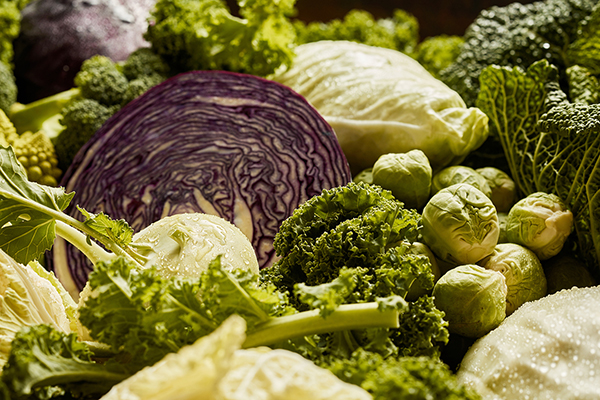




Q: I read an Op Ed piece in the NY Times recently in which the writer stated that a doctor had told her that eating kale, cabbage, Brussels sprouts and broccoli was not a healthy choice for anyone with hypothyroidism. I have hypothroidism, but have never heard this. I tend to eat a fair amount of all vegetables, including those listed. Is it safe to continue?
A: These vegetables are from the plant genus Brassica, which are known to be goitrogenic. A goitrogen is a thyroid antagonist found in food. Besides the vegetables you mention, also included in the Brassica family are turnips, rutabaga, watercress, kohlrabi and cauliflower.
As someone with hypothyroidism, should you avoid these vegetables completely? No. Make sure to eat most of these vegetables cooked, rather than in their raw state and don’t eat them every day. Always eat a variety of produce.
You can read more about this in my article, Hypothyroidism.
To your health!
Leyla Muedin, MS, RD, CDN
Though we think of declining estrogen as the hallmark of menopause, it's actually common for…

Up to 12 percent of Americans have ulcers at some point in life. Peptic ulcers…
Gallbladder disease is a modern illness. An estimated 20 million Americans have gallbladder disease. The…

There’s more to GI health than whether or not to take an acid-blocker. All too…

In the latest attempt to remove “stigma” from medical terminology, liver specialists have come up…

Q: My husband’s high sensitivity C-reactive protein (hs-CRP) is 1.62 and his homocysteine is 13.1. If…

Banish the Bloat: Leyla Weighs In with Tips and Insights

Our virtual voicemail is open 24/7, so there's no need to wait to submit your questions for Dr. Hoffman. Leave a message, and you may hear your question featured on the Intelligent Medicine radio program!